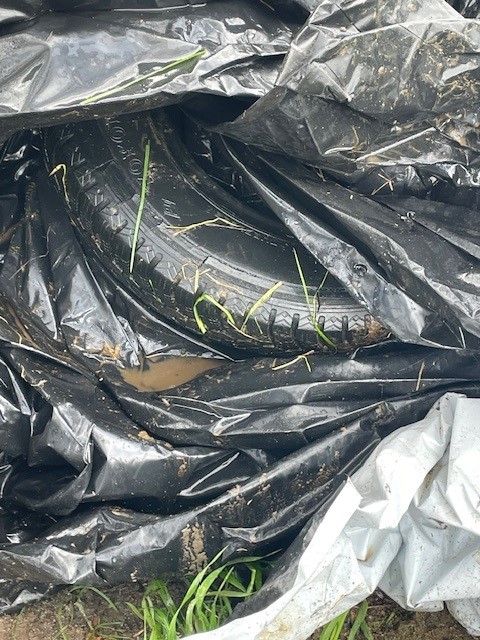Your cart is currently empty!

Reducing Contamination in Plastic Recycling: A Responsibility for All Farmers
As sustainability becomes a priority across industries, the agricultural sector plays a key role in minimising waste and maximising recycling efforts. One crucial aspect of this is reducing contamination in plastic recycling. Our buyers and collectors are increasingly emphasising the importance of clean, uncontaminated plastics in the recycling stream, and as a farmer, you can make a significant difference by ensuring your Plasback bin and liners are free of non-recyclable materials.
What Is Contamination?
Contamination occurs when materials not suited for recycling are mixed with plastics meant for processing. Common contaminants we’ve seen include:
– Rocks
– Tyres
– Tractor weights
– Clumps of dirt (particularly on pit covers)
– Bale nets
– Mixed plastics
– Household rubbish
While some of these might seem harmless, they can pose serious challenges for recycling facilities. For instance, dirt and other debris on pit covers need to be shaken off to an acceptable level, ensuring the material can be processed efficiently.
Why Is Reducing Contamination Important?
Health & Safety: Contaminants such as tyres, rocks, and household waste pose health and safety risks for the workers handling the recycling process. In some cases, foreign objects can cause equipment malfunctions or accidents.
Cost-Effective: Excessive contamination increases labour, repairs, and maintenance costs for recycling facilities. By sending clean, usable plastic, you’re helping reduce these operational pressures, allowing for a more streamlined process and keeping costs lower for everyone involved.
Reusability: The quality of recycled plastic depends on its initial condition. Plastics that are overly degraded, brittle, or damaged can’t be effectively processed into new products. By keeping your plastics in good shape, you’re contributing to the creation of high-quality recycled products.
Sustainability: Every farmer’s effort to lessen contamination helps protect the environment by reducing the amount of plastic waste that ends up in landfills. Clean plastic is a commodity that can be repurposed and reused rather than discarded, turning what was once waste into valuable resources.
What You Can Do to Help
– Shake off dirt from silage covers: While some dirt is inevitable, large clumps of soil or debris can render plastic unrecyclable.
– Separate plastic materials: Avoid mixing different types of plastics, as this complicates the recycling process.
– Dispose of non-plastic waste properly: Ensure your Plasback recycling bins are free from rocks, tyres, tractor weights, and other foreign objects.
Your attention to these details ensures the recycling process is safe, efficient, and sustainable. Together, we can turn plastic recycling into a valuable, reusable commodity that benefits not only the environment but the farming industry as a whole.
